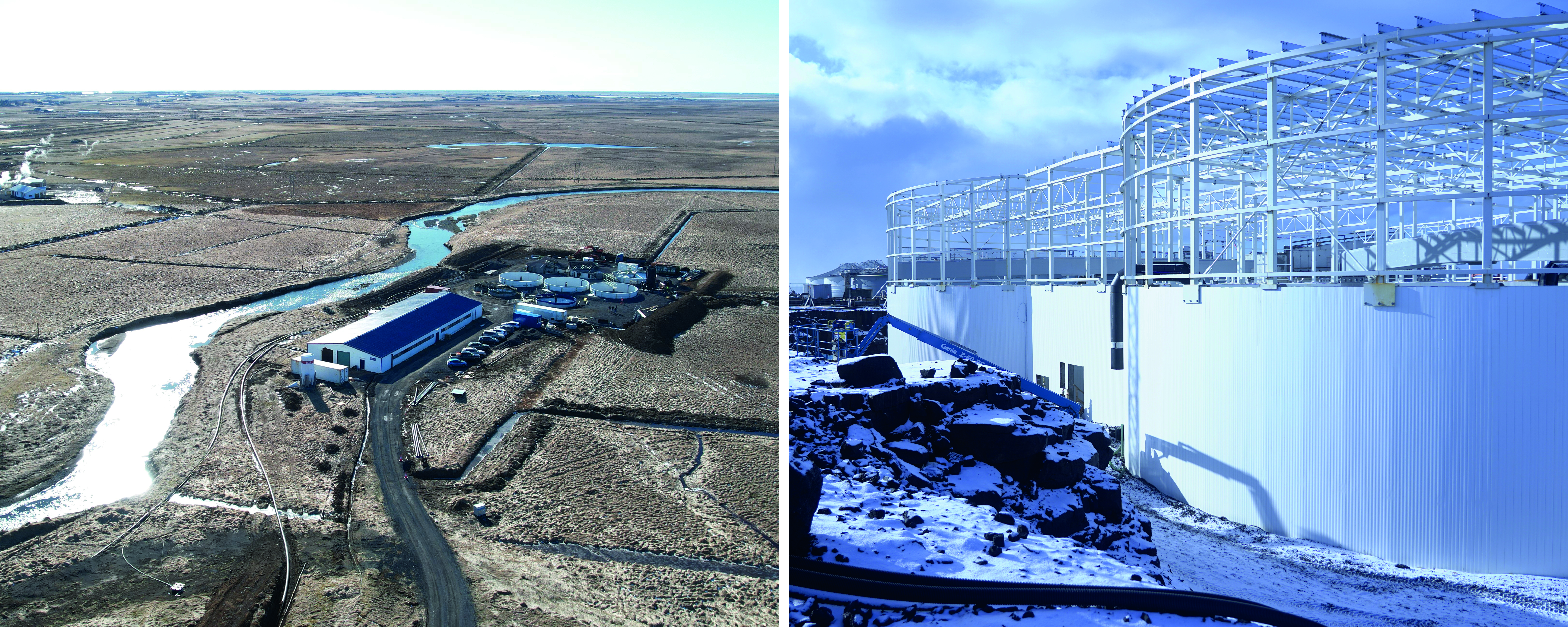Why we’re leaving open-net salmon farming behind

Most farmed salmon available in the UK has been reared in open nets. These mesh nets are normally anchored in cold seas just off the coast, meaning the fish spend their lives in relatively natural conditions. But being situated in open water exposes the salmon to wild fish, predators, pests and disease, as well as the changing weather and conditions of our seas.
Faced with these increasing welfare and environmental risks (including more temperature spikes at sea and new pests emerging like micro-jellies), and with publicly available data showing high mortality rates even on organic farms, at Abel & Cole we can no longer support any kind of open-net salmon farming. We’re committed to doing food right and now, after months of careful research, we have an exciting alternative to share with you.
In a UK first, we’re now exclusively selling Land-Based, Responsibly-Farmed Salmon from pioneering farms in Iceland and Norway.
All of our farmed salmon is now sourced from the crystal-clear waters of two 100% renewably-powered, land-based farms on the coasts of Iceland and Norway. And we’re still partnering with our trusted friends at Severn & Wye Smokery for their traditional smoking process, bringing you exceptional quality, texture and flavour.

Why have we made the switch?
• Welfare: From rising sea temperatures to disease, sea lice to net burn, salmon in open-net farms face significant welfare threats. In fact, some open-net farms have previously reported mortality rates of nearly 50%. On our new land-based farms, these threats are near eradicated, and the mortality rate is brought down to the agricultural standard of 1-3%.
• Biodiversity: Salmon in open-net farms regularly escape during stormy weather. The escaped salmon then breed with their wild counterparts, weakening the evolutionary fitness needed to migrate upstream. Combined with sea lice contamination, this threatens wild Atlantic salmon populations. On our land-based farms, there are no escapees or sea lice.
• Pollution: Waste, uneaten food and chemical treatments pollute the surrounding waters of open-net farms, causing dead zones which are harmful to marine life. On our new land-based farms, innovative hybrid flow-through systems bring in plenty of fresh water and clean it without the use of chemicals. For water so clear, we could see for metres down.
Why are we sourcing from Iceland?
Iceland’s energy is 100% renewably generated, coming mostly from geothermal activity, which ensures an abundant and reliable supply.
Land-based salmon farms also require a plentiful supply of clean water, both freshwater and saltwater, which in parts of Iceland can be extracted from boreholes behind the shoreline. Percolating through 300 metres of lava rock removes almost all impurities and pathogens and also warms the water year-round to 8-10°C – the ideal temperature to raise salmon. Thanks to a turbulent coastline, these boreholes are constantly replenished, so they’re a sustainable source of clean, untreated water.
While we move towards 100% of our farmed salmon coming from Iceland, we’re also working with a brilliant partner in Norway. We’ve visited both farms ourselves and have been impressed with what we saw there.
What about wild salmon?
There’s lots of debate out there about eating farmed vs wild fish. We know that many of our shoppers love cooking and eating farmed salmon, so our aim is to offer them the most sustainable way to keep enjoying this delicious and great quality source of nutrition. If we stopped selling it altogether, and encouraged everyone to eat wild salmon instead, many may choose to buy farmed salmon elsewhere – without our incredibly high welfare standards – and we wouldn’t be helping to solve the problem.
If you do prefer to choose wild fish, then we have an amazing range of alternatives available. Including Wild Keta and Sockeye Salmon, sourced from small fishing businesses in Alaska. They’re both currently rated 2 on the Marine Conservation Society’s Good Fish Guide, which rates the sustainability of wild fish stocks – giving you trusted guidance on which are best to eat from.
We’ve also introduced new Rainbow Trout. Chalkstream Trout raise their fish in closed systems on the River Test in Hampshire – we’ve seen the farm and the fish for ourselves and are confident you’ll love the taste.
Another great freshwater fish that tastes and cooks brilliantly is our Arctic Char, which we also source from land-based farms in Iceland. Ideal for poaching, baking, grilling and searing, it’s a perfect balance between the tenderness of trout and the flavour and firmness of salmon.
Published July 2025


